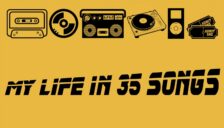Woke up, and wished that I was dead.
It’s 3am on the morning of November 6, 2025, and I’m still at work. One of the less desirable things about being a local journalism professional is that, on election nights, you’re up until all the precincts in your area report out their numbers and you can start projecting winners for things like county board seats or township administrators. At this point in my career, I’ve pulled the election night graveyard shift four or five times, and I typically don’t mind it much. I usually just put on a movie around 10:30pm and wait until the numbers start rolling in and I can write up my report so that the results are there in our subscribers’ email inboxes the next morning. In this particular case, though, the election night shift is the stuff of nightmares, because it involves writing the following words as my lede:
“Former president Donald Trump looked likely to win the presidency as of 3am Wednesday morning, defeating Democratic challenger (and current vice president) Kamala Harris.”
I haven’t been shellshocked a whole lot of times in my adult life, but I was truly at a loss for words watching the results come in on election night last year. With every passing hour, I could feel my heart sink a few more inches, until I finally punched in that sentence at 3:00 in the morning, turned off my computer, and tried to get some sleep. There was no movie that night, nothing pleasant or fun to kill the time as I waited for the moment when I’d have enough information to write up my local election report. Instead, I spent the better part of five hours obsessively refreshing my election maps, social media feeds, and Chorus.fm forums, looking for some sign that the growing feeling of dread in the pit of my stomach was an overreaction.
Read More “My Life In 35 Songs, Track 35: “World Spins Madly On” by The Weepies”
